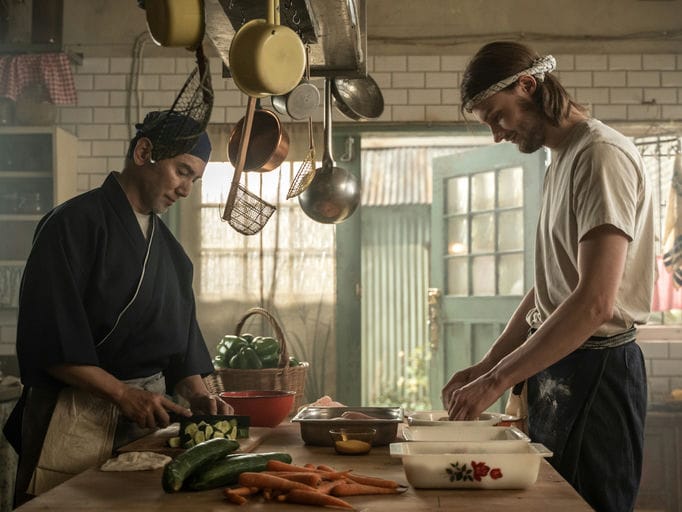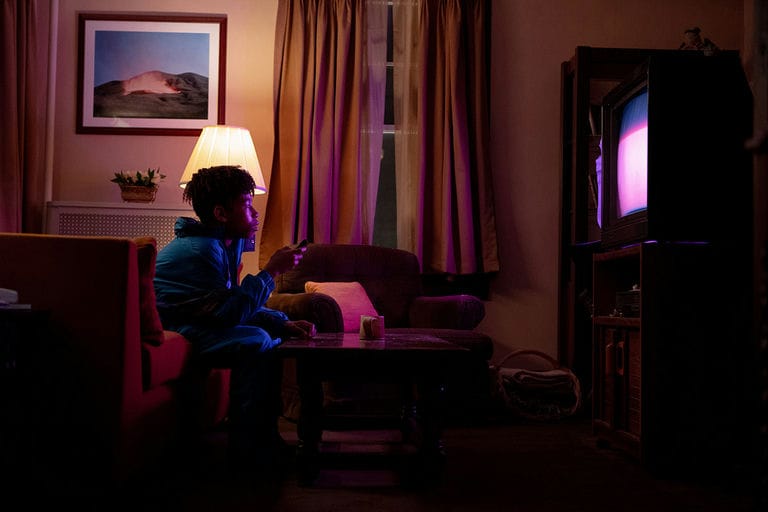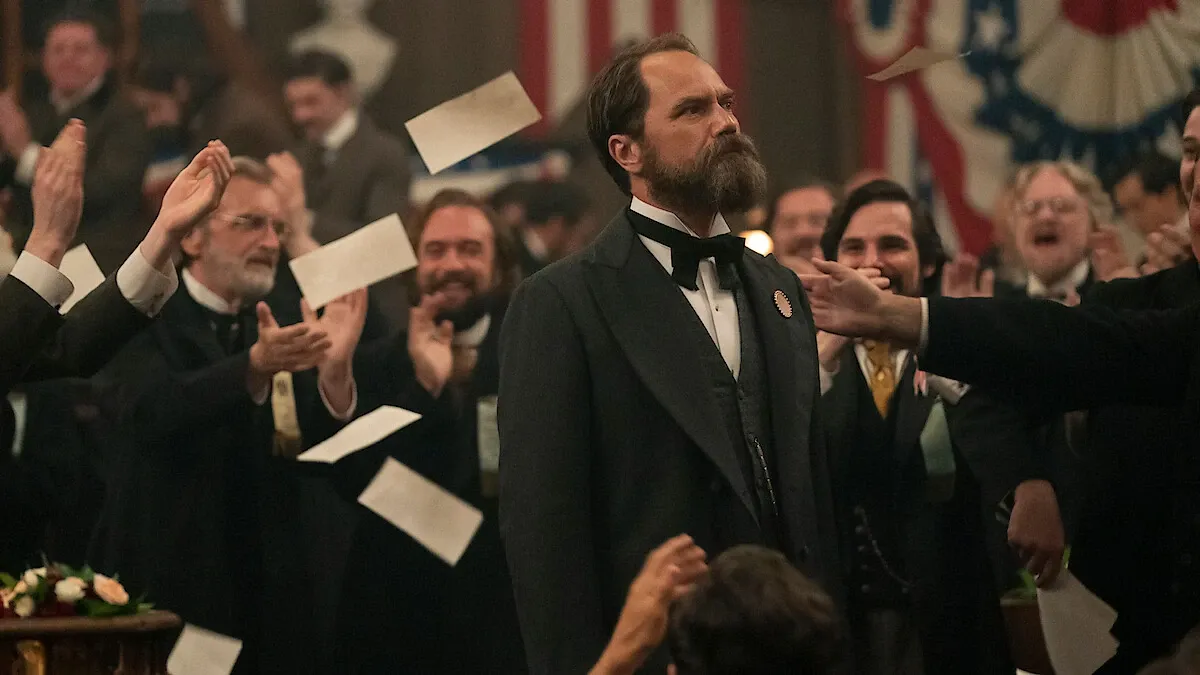Kneecap
★★★★★
Sort of a true story, but also kind of bullshit, Kneecap is dubious in its regaling of the Irish band's origins, yet it's nothing short of brilliant nonetheless. Like an epic tale that goes even more overboard with every telling, Kneecap is a furiously funny and surprisingly poignant story of fighting for the right thing.
It's a surprising film in many ways. For one, I didn't know the band plays themselves in the movie; they're that good in their parts. Charismatic, honest, and magnetic, you can see why they draw audiences to them. Their music slaps, too, which helps.
Directed with bravado and smarts, Kneecap is one of my favorite films of the year. Like Sing Street on ketamine, it reminds us that music biopics don't have to be drab, stodgy affairs.
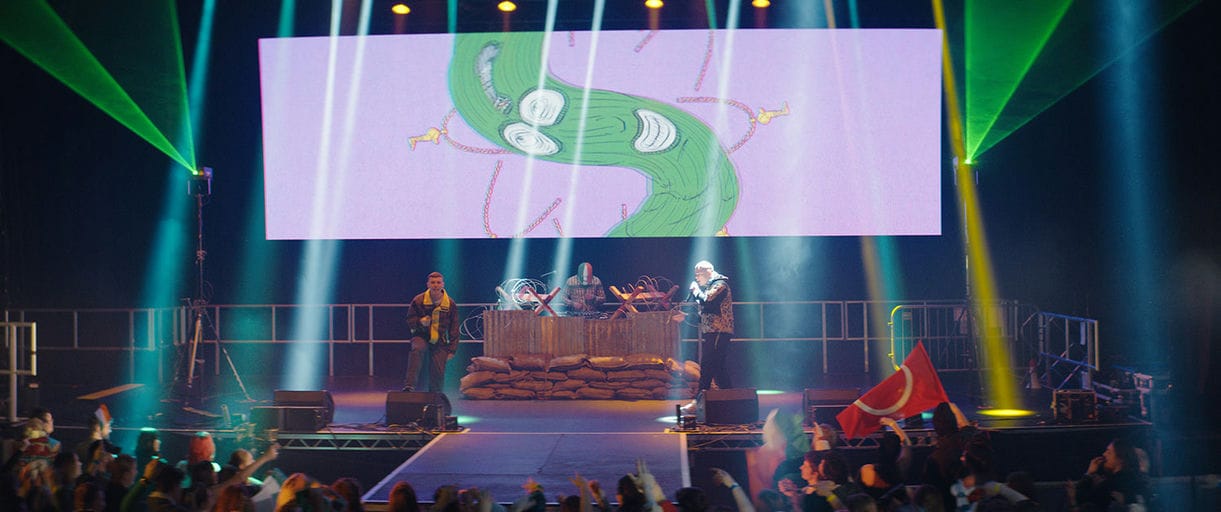
Evil Does Not Exist
★★
Ryûsuke Hamaguchi is one of my favorite filmmakers, which is why I'm so bewildered by how lifeless Evil Does Not Exist was. This is a beautifully crafted film with great acting and a dreamlike pace that ends with a massive"That's it?"
Set in a remote town outside of Tokyo, where the occupants all have come to escape something, Evil Does Not Exist is, for the most part, a tender and somber exploration of the relationships between ourselves and the world around us.
Yet it's also adamant about not prodding any further on any subject, leaving the whole as a superficial glance at the complex, nuanced, and rich stories that it sets up. A widowed father quietly keeps his community alive through unspoken agreements. A marketing executive grows disillusioned with their life in Tokyo. A young girl wanders into the forest where time and reality seem to bend out of control.
For the first hour, it feels like Hamaguchi will take us on another immersive, heartfelt ride into our souls. By the end, 40 minutes later, it's clear he never intended to, and his picture falls into a gorgeous, empty mess. What a waste.

I, The Executioner
★★★★
Imagine the last 30 minutes of David Fincher's Seven, including the macabre carnage and all, and then replace the detectives with The Three Stooges and you've got an idea of the tonal madhouse that is I, The Executioner.
A massive hit in South Korea upon its release, I, The Executioner is a bizarre mix of genres that somehow works like a charm. It's wild charms won't be for everyone, though, especially as the film goes from slapstick comedy to brutal murders in a heartbeat.
But for those willing to go along with the goofy antics, I, The Executioner proves a surprisingly effective action-comedy-thriller with a meaningful message about the state of social media and its effects on society.
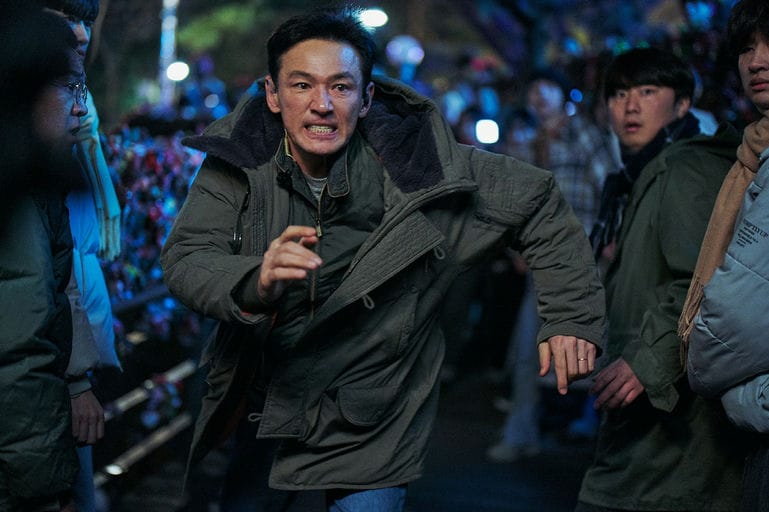
I Saw the TV Glow
★★★
Growing up as an undiagnosed autistic queer kid in the 90s wasn't fun. It still isn't, to a degree, but age brings about introspection that helps. As such, I thought I would love I Saw the TV Glow, a trans-allegory and fable set in the 90s suburbia of the American heartland.
Instead, I found it earnest, often poignant, yet unsatisfying and timid in places where it shouldn't be. It reminds me of a Patrick Wolf song, only less effective. The 90s nostalgia vibes hit beautifully, and the cast gives it their all, leading to some truly heartbreaking and relatable moments where they bond over a love of fantasy-fueled teen dramas on the TV.
But it demurs when it should rage, and despite a heartwrenching final act it never comes together. For me at least. And yet, if there's anything that I Saw the TV Glow teaches us, it's that none of these stories are the same. We all suffer in our silence uniquely. For some, it will deliver a catharsis unlike any other. For that, it deserves your attention.
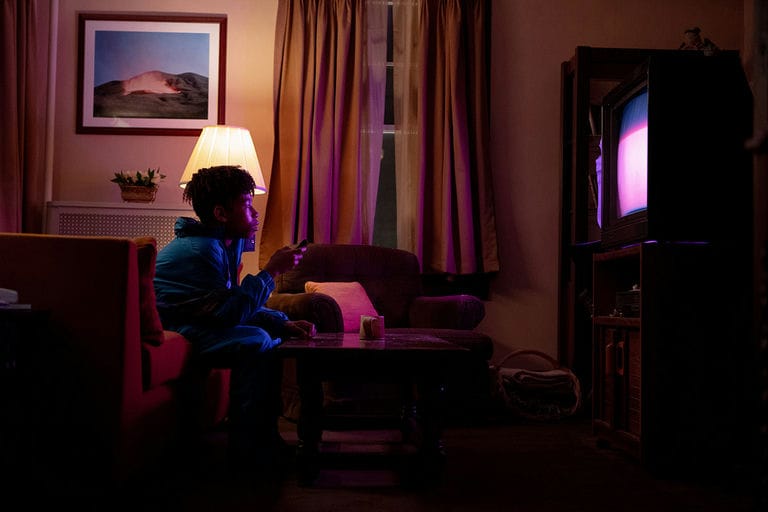
Hayao Miyazaki and the Heron
★★★★
Hayao Miyazaki is a global treasure, and yet, as both this and director Kaku Arakawa's previous film, Ten Years with Hayao Miyazaki show, the cost of that adoration might not be worth the pain.
This intimate portrait of both the creative process and the losses we face as we age follows Miyazaki through the difficult production of The Boy and the Heron. In Japan, the film is titled How Do You Live? which feels even more apt considering everything we learn about its creation.
Miyazaki allows Arakawa closer than his previous film, which proves both enlightening and heartbreaking, as we witness his frustrations and sorrow in the losses he faces over the pandemic years. His close friend and rival, Isao Takahata, passes, and Miyazaki grapples with the tremendous loss. As time passes, more friends leave, and the great artist can't help but wonder what he has left in his life.
For those looking for a lighthearted romp into the world of animation should look elsewhere. Instead, Hayao Miyazaki and the Heron is more of a portrait of obsession, drive, and regret. All of which play a mammoth part in Miyazaki's works. Arakawa's keen lens captures the process beautifully, and in turn, enriches the experience of seeing Miyazaki's great films in a new light.
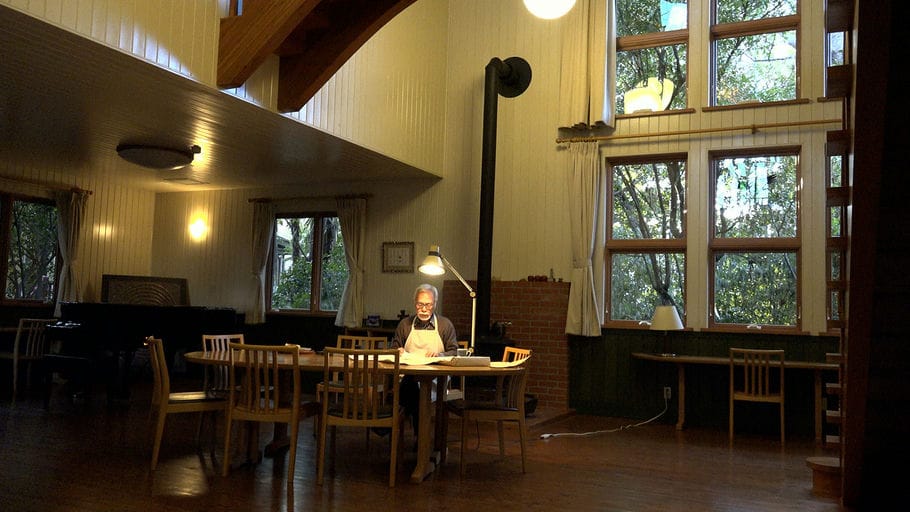
Touch
★★★★
As a love story, Touch is beautiful and happily lacking in melodrama. It gracefully sidesteps most cliches associated with the genre, and instead focuses smartly on the growing pains of finding and losing love, and forever wondering what could have happened if you'd taken another road in life.
This is a wonderfully quiet and tender film, directed with elegance by Baltasar Kormákur, who understands when to give his characters the space to not say what they're feeling inside. It's those silences that we find the most meaning, and those empty spaces prove most devastating as we picture the person missing from them.
A film like this could easily prove egotistic. It is, after all, a story of aging told through the perspective of a man in his golden years. Yet Kormákur rejects any navel-gazing and easy answers. Instead, he depicts life as it is: messy, grand, and unexplainable. We are a collection of our choices, and we're always capable of making new ones.
